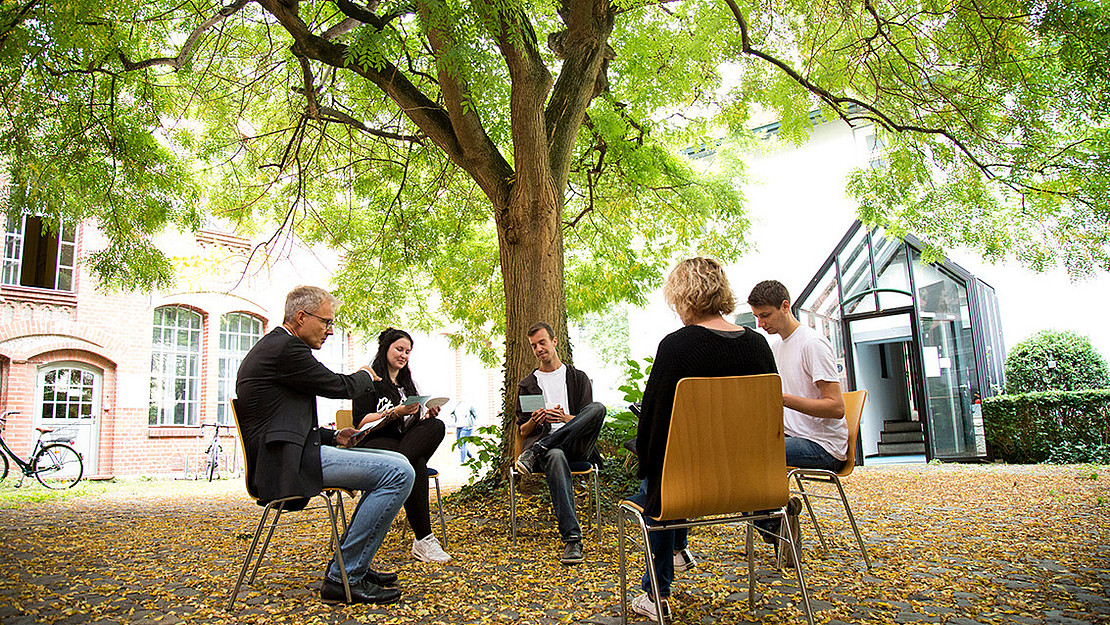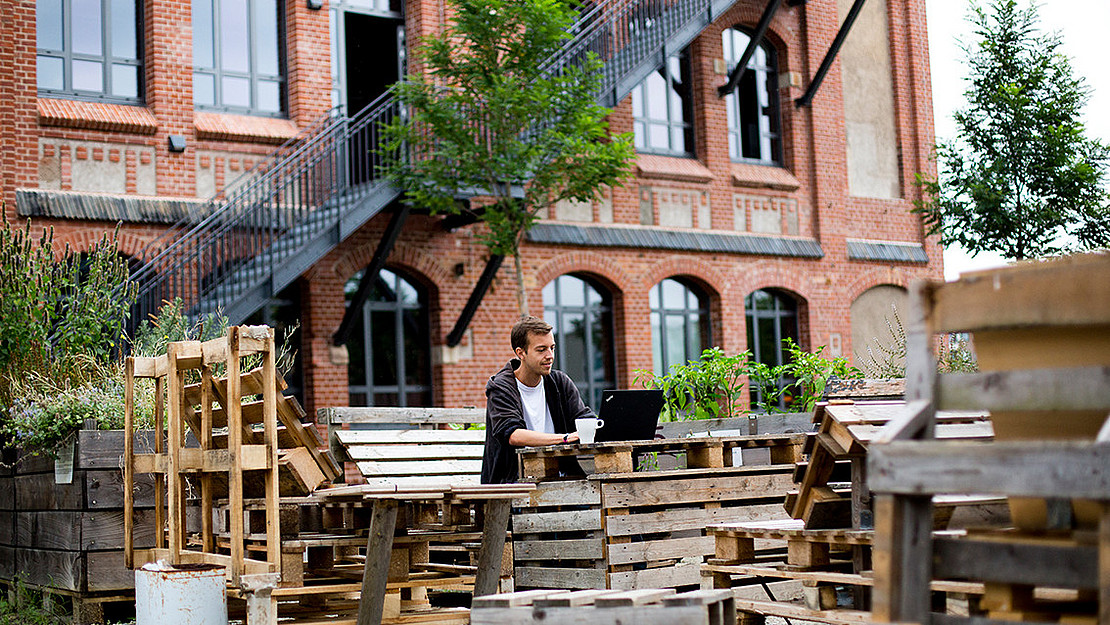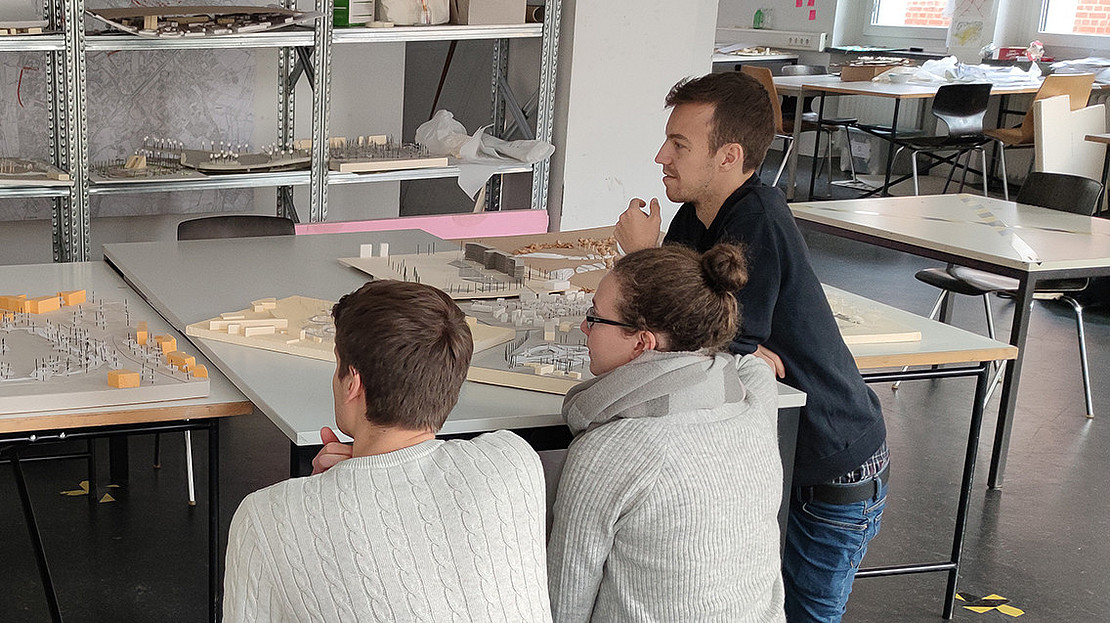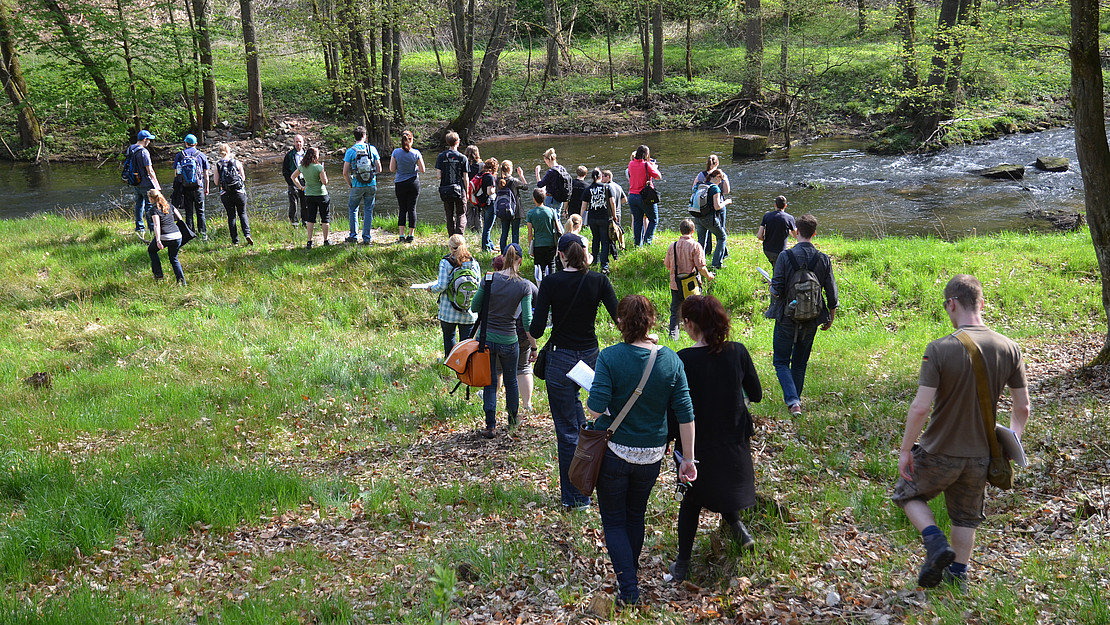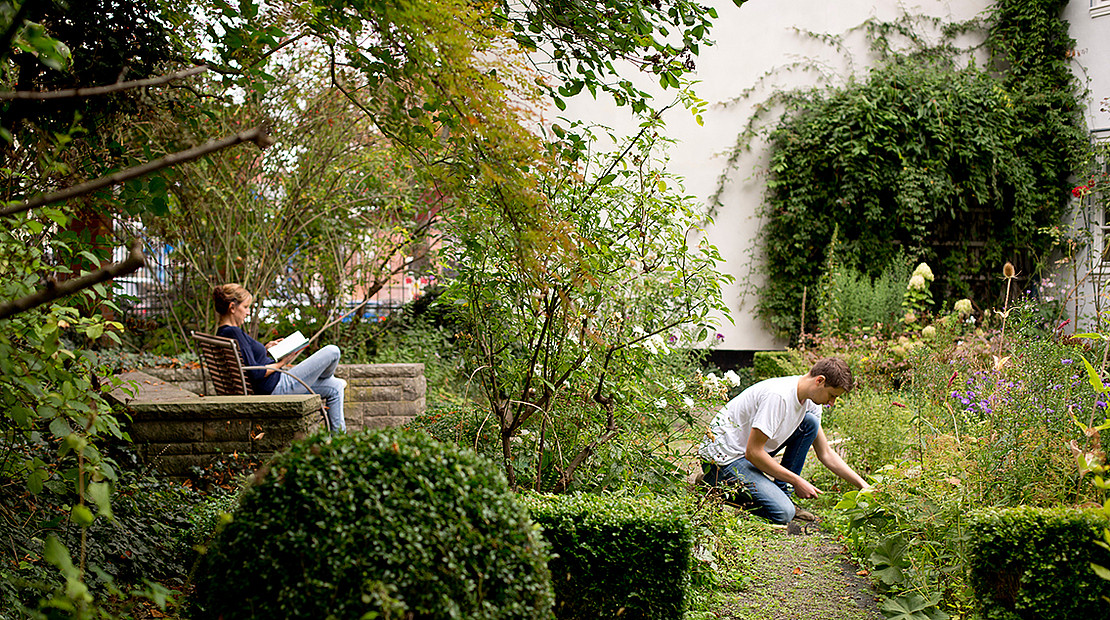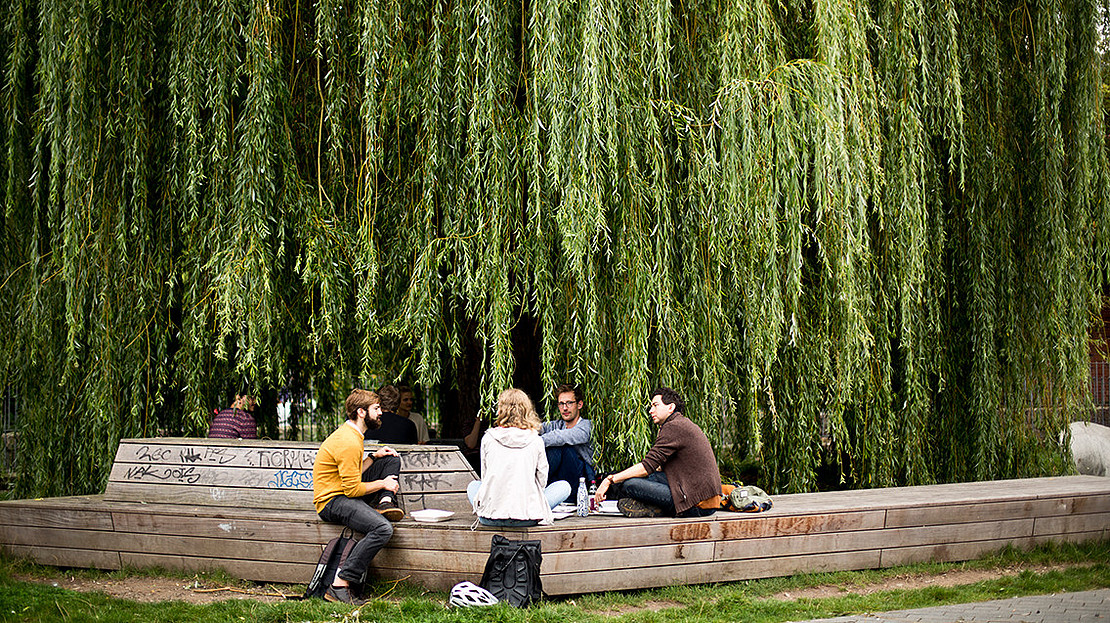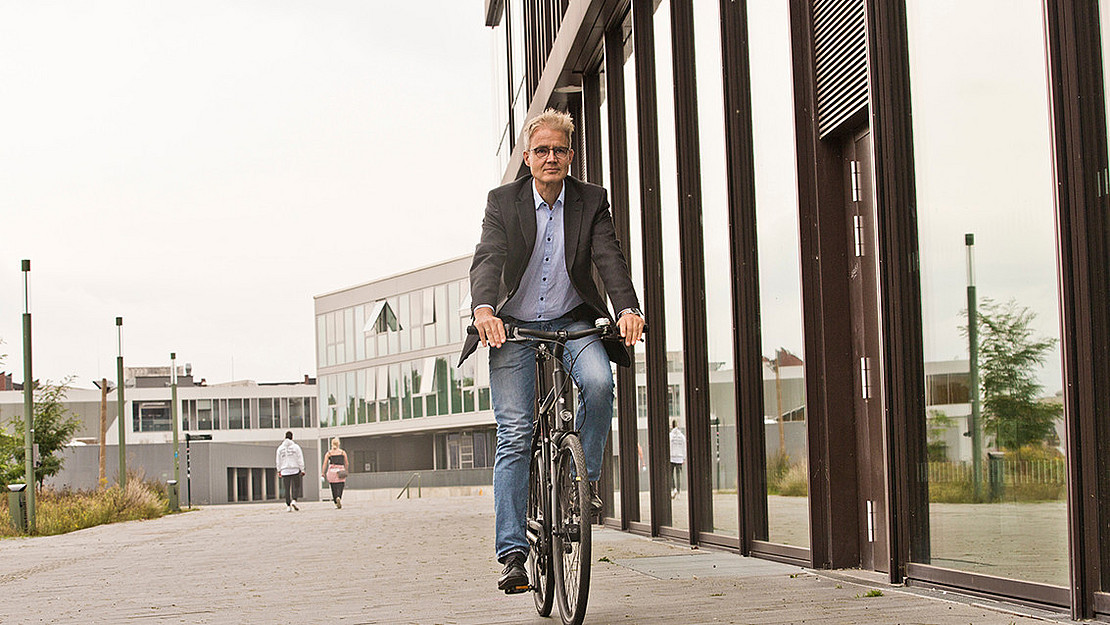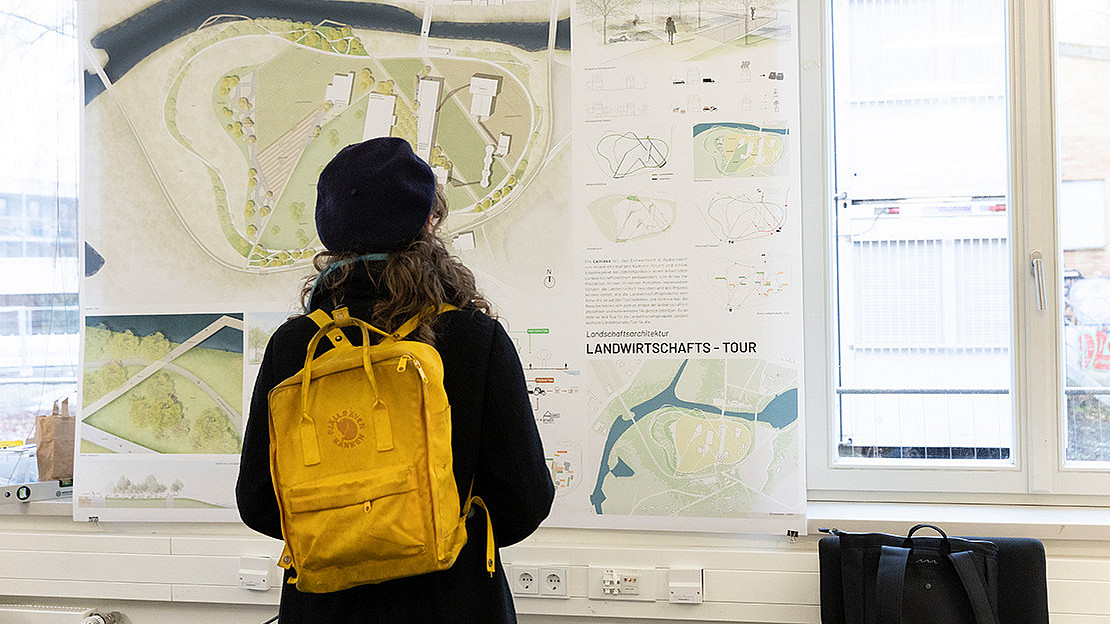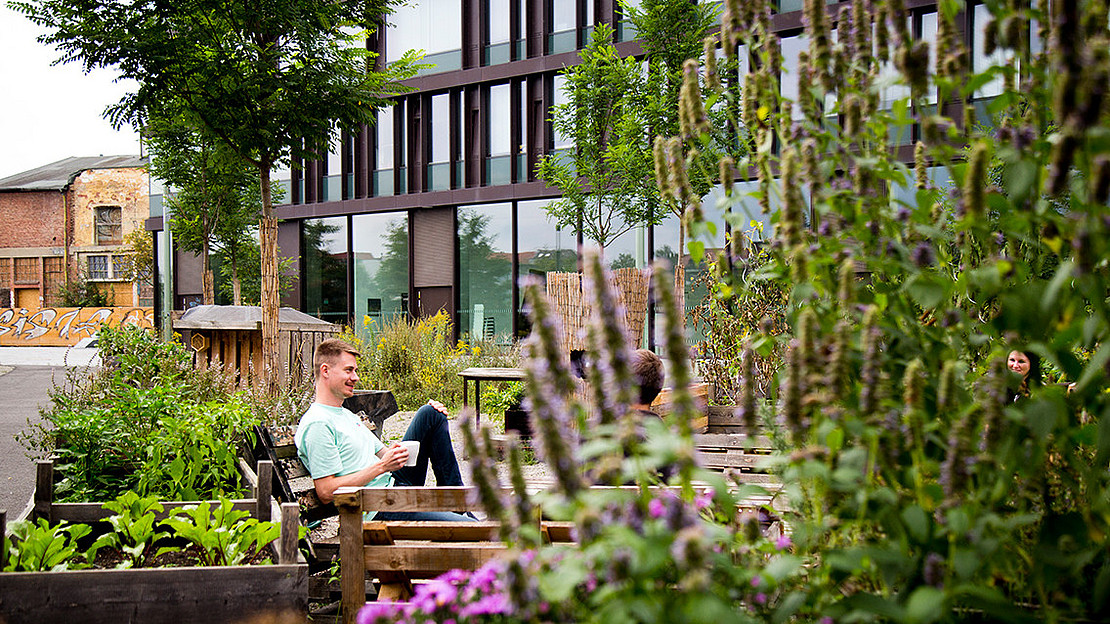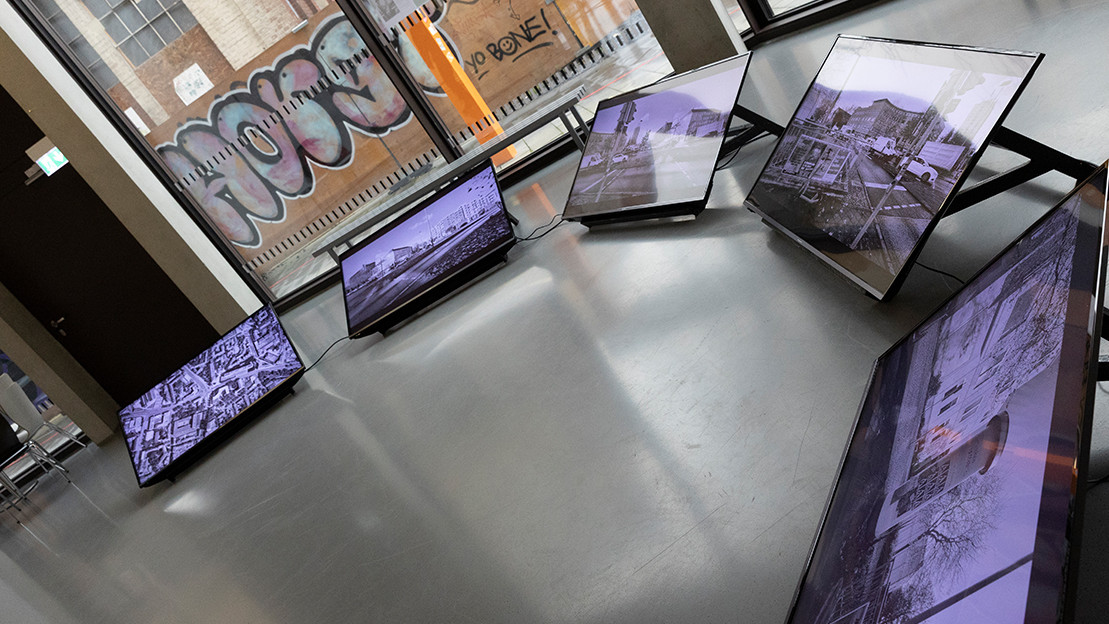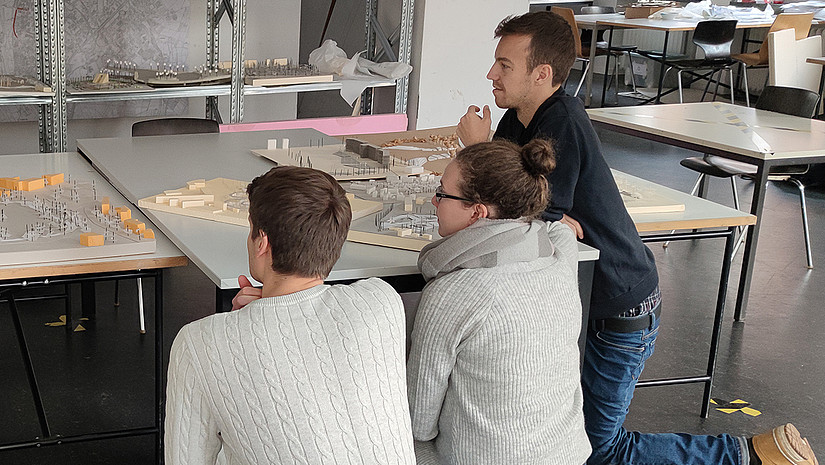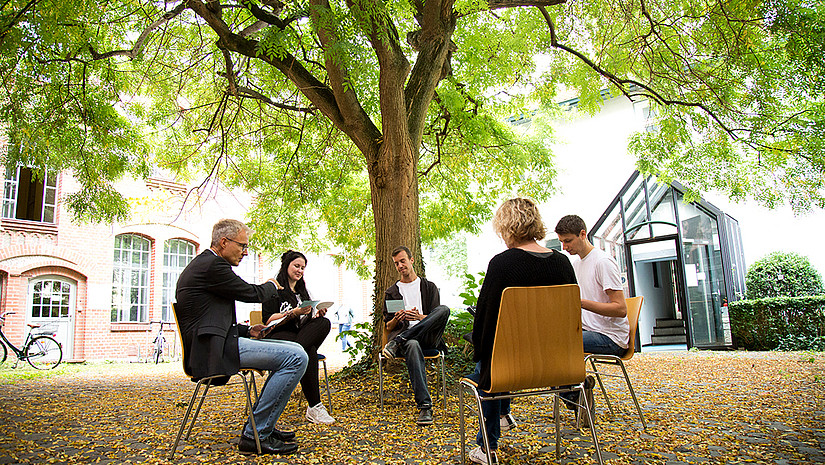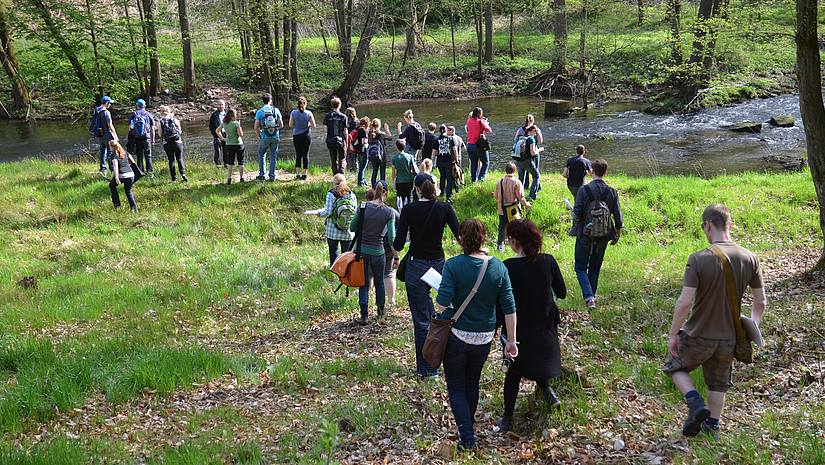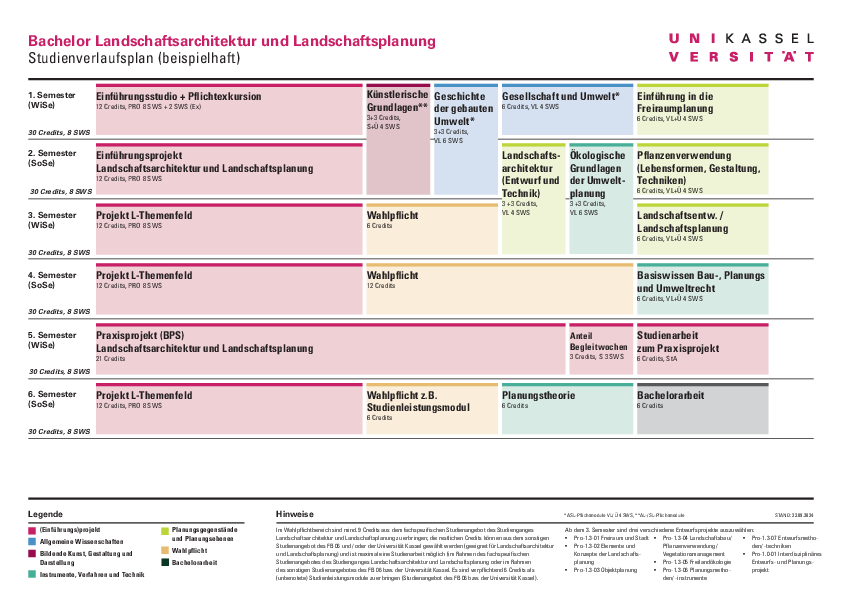How is the course structured?
This page contains automatically translated content.
The interdisciplinary introductory studio in the first semester serves as an introduction to the basics and diversity of planning and design. The studio work focuses on conceptual and creative thinking, design and presentation as well as communication within the team and with the outside world.
The aim of the introduction is to teach the common content-related basics and initial methodological knowledge - such as perspective drawing or the basics of computer work in CAD or layout programs - for the three disciplines of architecture, urban planning and landscape planning.
The introductory project in the 2nd semester expands the skills learned on the basis of a subject-related task with comparatively simple structural-spatial or conceptual contexts.
In the 3rd-6th semester, project modules are offered in the compulsory elective area, which combine the learning objective of design and planning skills with various subject-related focal points.
A practical project module with accompanying seminars is integrated into the 5th semester of the Bachelor's degree course, which serves to combine theory and practice and a personal analysis of strengths and weaknesses. It is organized and supervised by the department. In this module, students get to know the demands of practice by working in an office and can make valuable contacts for the time after graduation.
At this stage, students have the experience and knowledge gained during four semesters of study at their disposal and can therefore also be entrusted with independent tasks at the practice locations. Subsequently, as part of the Bachelor's thesis, there is the opportunity to specifically expand on the interests, deficits and potentials identified in the practical project.
The project module in the 6th semester usually prepares students specifically for the topic of their final thesis (Bachelor's thesis). The further course of study and the final Bachelor's thesis are designed in such a way that the interests developed in the practical project at the latest can be intensified.
